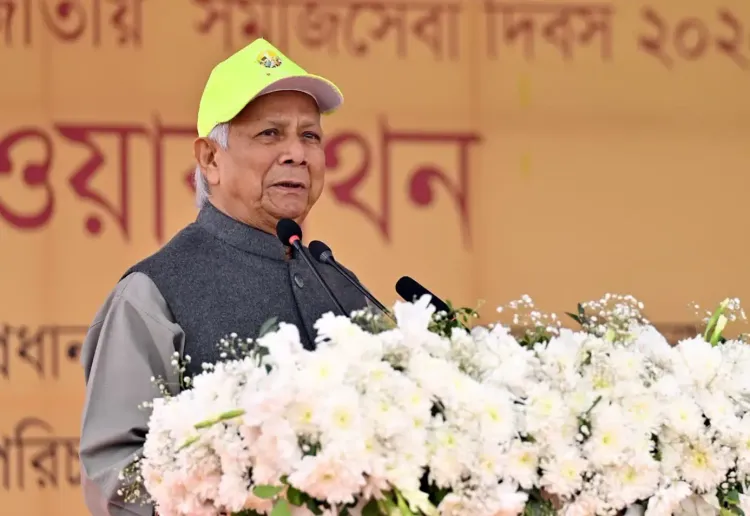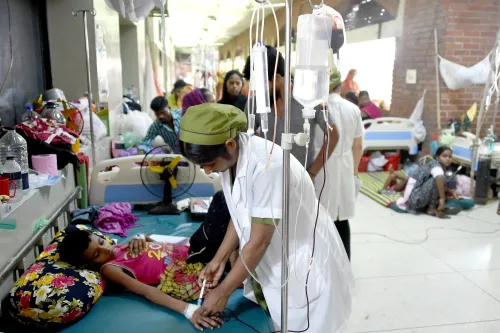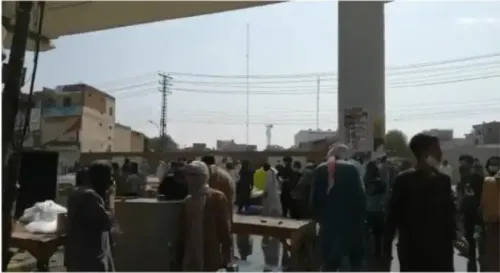Is Bangladesh Facing an Increase in Religious Violence Under the Yunus Regime?

Synopsis
Key Takeaways
- Increase in religious violence affecting various communities.
- Attacks on Sufi shrines raise concerns about cultural heritage.
- Yunus-led government criticized for inaction.
- Need for unity among civil society and leaders.
- Risk of rising extremism threatens national identity.
Dhaka, Sep 19 (NationPress) A prominent international advocacy organization has drawn attention to the concerning increase in religious violence in Bangladesh, which goes beyond the persecution of minorities under the leadership of Muhammad Yunus’ interim government.
In its report titled 'The Burning of Shrines: Bangladesh’s Spiritual and Cultural Soul Under Attack', the Canada-based Global Centre for Democratic Governance (GCDG) noted that while Hindu, Christian, Ahmadiyya, and indigenous communities have experienced documented violence and repression, widespread attacks have also targeted sacred sites within the majority Muslim community, particularly Sufi shrines, dargahs, and pilgrimage centers that are deeply embedded in Bangladeshi Bengali spiritual and cultural traditions.
According to the GCDG, "Since August 2024, assaults on over 100 Sufi shrines and sacred sites have occurred with alarming frequency across the nation. In many instances, the attackers, armed with local weapons, have executed acts of destruction in broad daylight, sometimes even in the presence of law enforcement officers, who have faced widespread criticism for their inaction."
"Such acts of religious desecration are not isolated incidents. They signify a broader campaign aimed at erasing the syncretic spiritual identity of Bangladesh. These shrines, often constructed around the graves of Sufi saints and revered preachers, have historically been pilgrimage sites for individuals from all backgrounds seeking peace, healing, and divine blessings," it further stated.
The advocacy group underscored that the ongoing assaults are being viewed by many as part of a wider cultural assault, an effort by extremist factions to replace Bangladesh’s diverse and tolerant religious heritage with a narrow, militant, and imported ideology.
According to the GCDG, the symbolic destruction of shrines and the simultaneous targeting of markets and cultural spaces indicate a coordinated strategy aimed at imposing a more radical socio-religious order in the country.
Expressing profound concern, the advocacy group noted that the most alarming aspect is the silence or inaction of the Yunus-led interim government in addressing the surge of religious violence and shrine attacks across Bangladesh.
"The absence of decisive action from the interim government has emboldened extremists and instilled fear and uncertainty within the general populace. Many now fear that unless the state intervenes decisively, Bangladesh risks evolving into a fertile ground for Taliban-style fanaticism," asserted the GCDG.
"In a nation founded on pluralism and cultural resilience, this wave of extremism poses an existential threat. The urgent need of the moment is for civil society, law enforcement, and spiritual leaders to unite in resisting the violence before the damage to Bangladesh’s soul becomes irreversible," they emphasized.









